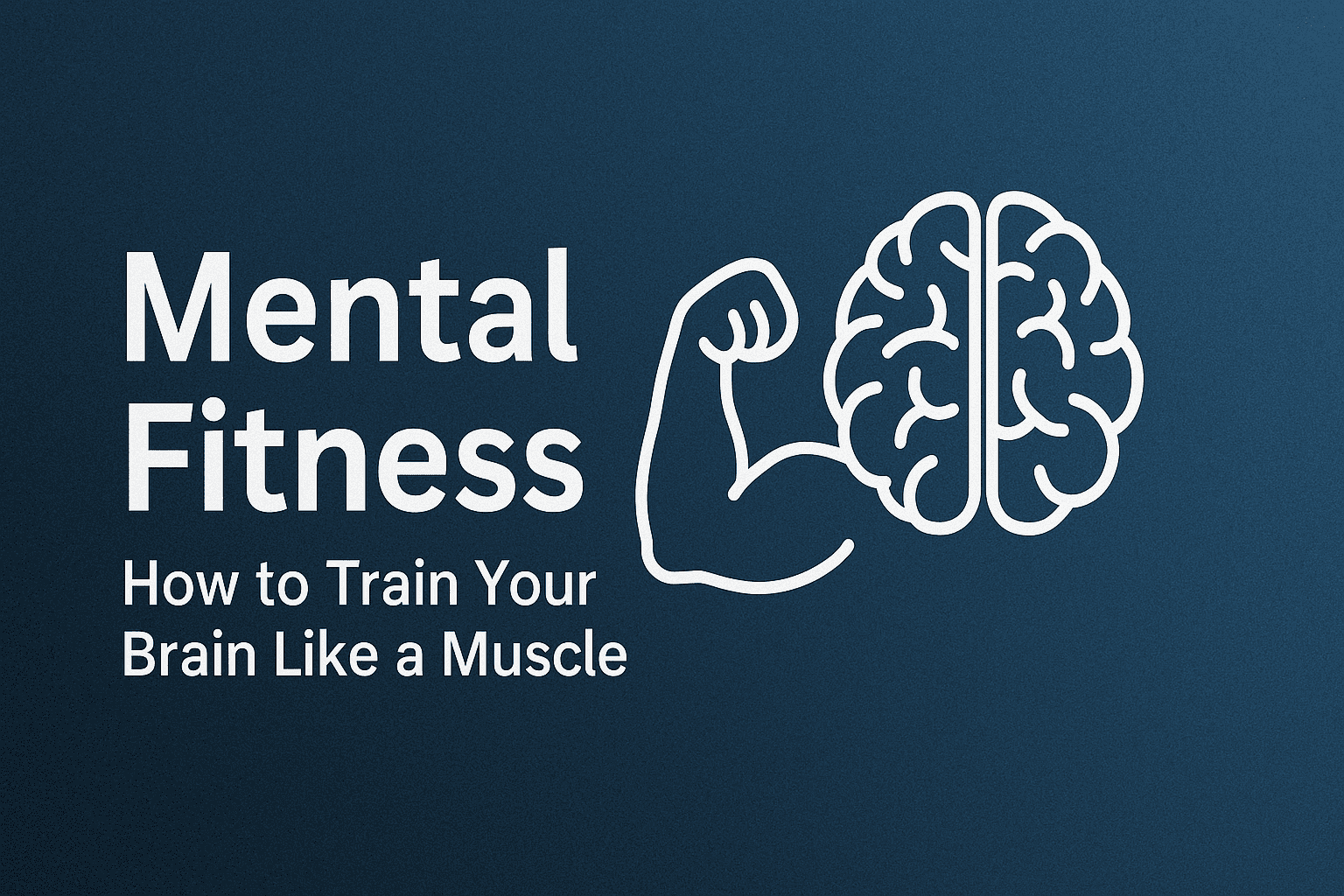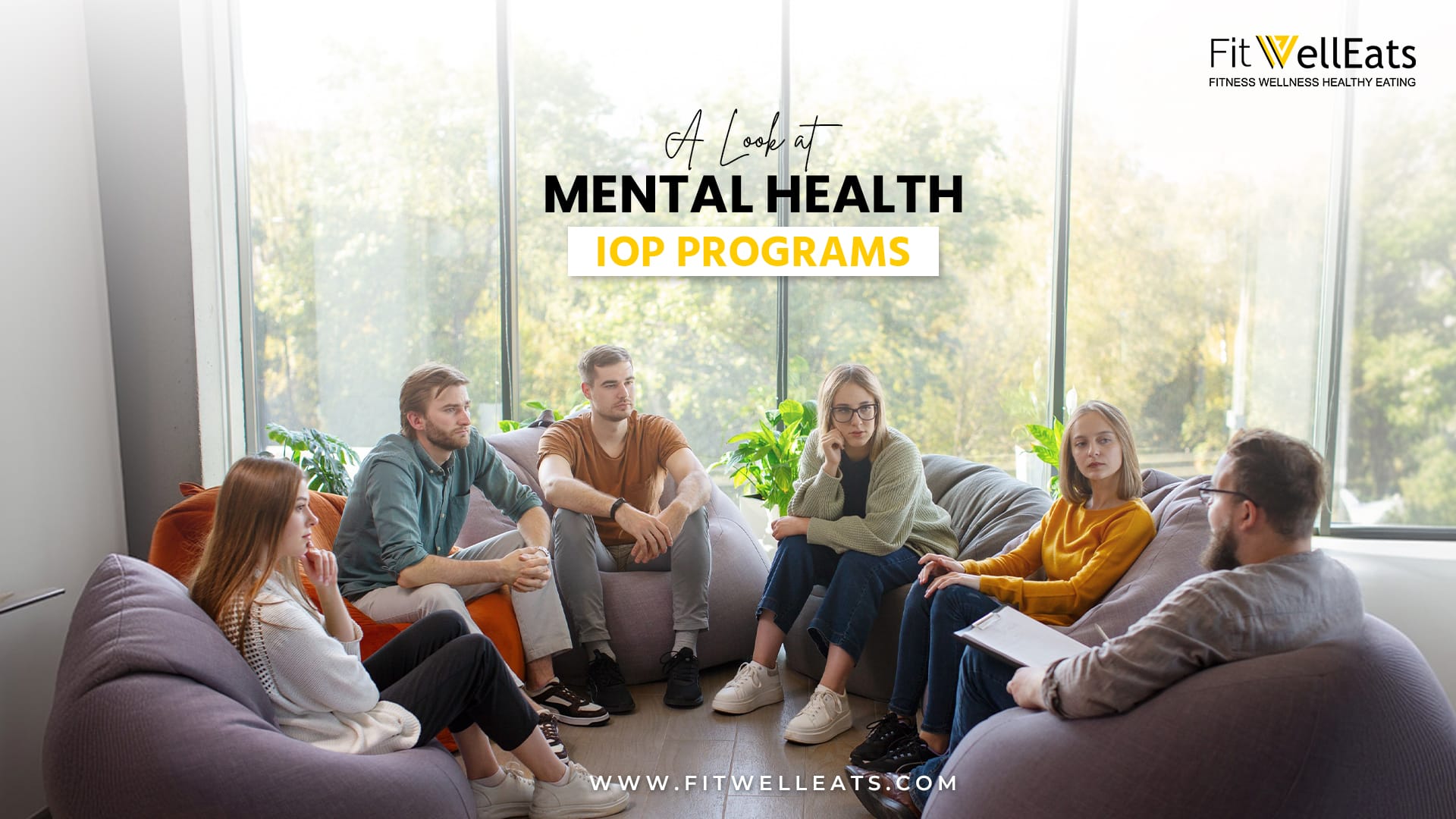
Prioritizing mental fitness is as important as physical fitness in today’s fast-paced digital world. Like your body, your brain gains a lot from regular exercise. Brain training and cognitive health workouts that work can help you focus better, remember things better, be more productive, and keep your brain healthy in the long run. This all-inclusive guide is the best way to improve your brain strength.
Why Mental Fitness Matters
Emotional, psychological, and cognitive well-being are all parts of mental fitness. It’s a big part of dealing with stress, getting along with others, and making choices. An emotionally fit person is stronger, more flexible, and more productive. As science continues to learn about the intricate mind-body connection, making an investment in mental health is no longer optional—it’s crucial.
The World Health Organization says that mental health is more than just not having a mental disorder. It’s a state of well-being where everyone can reach their full potential, deal with everyday stresses, work effectively, and give back to their community.
The Science Behind Brain Training Exercises
The Harvard Health Blog, the American Psychological Association, and Neuroscience News all released studies that show structured mental workouts can improve neuroplasticity. Neuroplasticity is the brain’s ability to change how it works by making new neural connections. Puzzles, memory games, and problem-solving tasks use different brain parts, just like gym workouts work out various muscle groups.
Digital apps like Lumosity, Cognifit, and BrainHQ have programs based on studies that make brain training fun and useful. If you use these tools regularly, you may notice changes in your ability to remember things, make decisions quickly, and even control your emotions.
5 Steps to a Stronger Brain
1. Set Mental Goals
Setting clear mental goals, like fitness plans, can help you stay motivated and on track. Clear goals will also help you reach your training goals, whether to improve your focus, learn a new language, deal with stress, or be more creative.
2. Incorporate Cognitive Health Workouts
Take part in things that make you think differently and help you solve problems better:
- Puzzles like Sudoku, crosswords, and logic games
- Memory games like Brainwave Game
- Online learning tools like Lumos Learning (Lumos Learning Login)
- Customized brain games are available through the Cognifit and BrainHQ login portals.
These workouts aim to improve working memory, attention span, language understanding, and spatial thinking.
3. Practice Mindfulness and Meditation
Mindfulness strengthens the mind-body link and improves emotional control. Mindful walking, guided images, and deep breathing can help you focus and feel less stressed. Some well-known mindfulness tools are:
- Guided meditation apps like Headspace and Calm
- Gratitude journals and reflection apps.
- Communities like Being With You focus on emotional awareness and presence.
4. Maintain Physical Health for Mental Gains
Working out increases the flow of oxygen and nutrients to the brain and helps new neural connections form. Don’t forget how good your physical health is for your mental health:
- Aerobic activity to make the brain bigger
- Strength training to improve brain function
- Massage treatment to lower cortisol and improve focus (Look for services near you by searching for “massage Sioux City” or “Sioux City Iowa massage”).
5. Track and Evaluate Your Progress
To get better, you need to be consistent. Dashboards let you monitor your learning, habits, and personal growth with tools like Ownwell Login and Bu Brain Login. Ask yourself: How many activities did you get 5 points on last week? As you progress, apps like BrainHQ will reward you and help you focus on your goals.
Best Tools and Apps for Brain Training
Lumosity
Lumosity has more than 40 games made with science in mind to test basic cognitive skills like memory, thinking speed, and attention span. Their “adaptive difficulty” feature ensures that the games change as you get better at them.
Lumos Learning & Lumos Webmail Login
It was mostly made for students and teachers, and Lumos Learning offers tests and learning materials. It can also help adults understand what they read and do better in math. Use the Lumos Learning Login or the Lumos Webmail Login to access your tools.
Cognifit
Cognifit takes it further by combining health tests with custom workout plans. It’s used extensively in clinical, educational, and personal growth settings.
BrainHQ
Posit Science created BrainHQ, which has been tried in real life to improve significant parts of brain function. It’s especially helpful for older people and people who have recently hurt their brains.
Brain Gymnasium
Physical activities that stimulate brain function are part of this idea. Cross-crawls, eye-tracking drills, and balance poses are all movements that improve brain function and coordination. They are used extensively in schools and physical therapy.
Boosting the Mind-Body Connection
A big part of mental health is connecting your mind and body. Yoga, tai chi, and regular breathing are all activities that can help your health by stimulating your brain and body. Foods with omega-3 fatty acids, antioxidants, and B vitamins have been linked to better brain function.
Communities like WaystoWell and Being With You also provide integrated wellness programs that address mental, physical, and emotional health holistically.
Common Myths About Mental Fitness
- Is NHS worth it for mental health? In the UK, the NHS offers important mental health services, such as help finding therapists and support groups. Long-term mental health needs habits and tools you can use independently.
- Only seniors need brain training. Brain training is important for everyone, from kids to adults.
- Brain games are just entertainment. Instead, many apps are made with neuroscientific research in mind, and they have been shown to improve cognitive skills in measurable ways.
FAQs
1. What is mental fitness?
Mental fitness means actively improving your mental, emotional, and cognitive skills through structured routines, activities, and ways of living.
2. What are the best brain training exercises?
Some of the best brain training exercises include:
- Memory games
- Logic puzzles
- Language-learning apps
- Meditation and mindfulness
- Interactive tools like Lumosity, Cognifit, and BrainHQ
3. Can brain training really improve memory?
Yes. Cognitive health workouts have been shown to improve memory, attention, and emotional control over time.
4. How do I log in to Lumos Learning?
You can log in to Lumos Learning Login. Use your login information to access your custom learning dashboard.
5. How many activities did you get 5 points on?
This is a standard way for apps like Cognifit and BrainHQ to track your progress. Your goal should be to raise your score slowly each week.
Train Smart, Live Better
Your brain is your most powerful asset. Just like you wouldn’t neglect your physical health, don’t ignore your mental fitness. Start small—try a few brain games on Lumosity, schedule a Sioux City Iowa massage, or set a weekly mental goal using tools like Ownwell Login.
Ready to build your brain power? Log in to Ownwell and track your progress today. Remember, a sharper mind leads to a fuller life.
#mentalfitness #braintraining #cognitivehealth #mindbodyconnection #lumosity #cognifit #brainhq #lumoslearning #massage #siouxcity #brainexercises
Related Posts
Disclaimer
⚠ Disclaimer – FitWellEats.com
All content on FitWellEats.com is for informational purposes only. It does not replace professional medical advice. We may earn a commission from affiliate links (at no cost to you).










